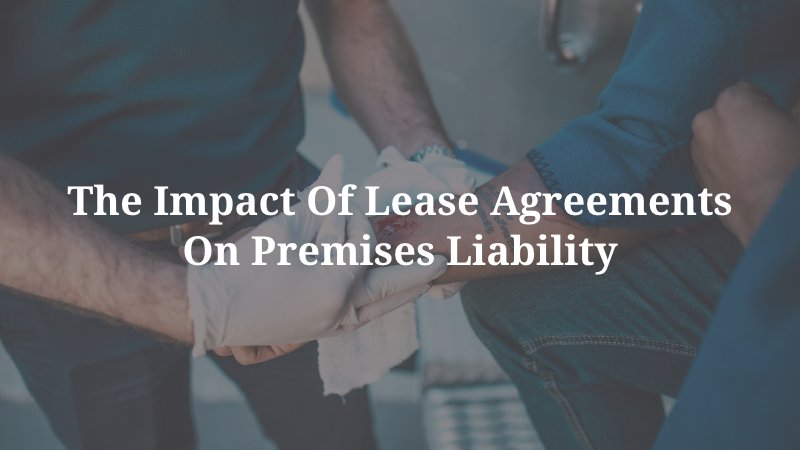The Impact of Lease Agreements on Premises Liability

Lease agreements can play a significant role in determining who is liable for a visitor’s injury. In many cases, lease agreements outline the property owner’s responsibilities for maintaining a safe environment and the extent of a tenant’s liability for injuries that occur on the premises.
Lease Agreements and Liability for Visitor Injuries
Premises liability refers to the legal responsibility of a property owner or occupier to maintain a reasonably safe environment for those who legally enter their property. When someone is injured due to a property owner or occupier’s negligence, they may be held liable for the resulting damages.
The lease agreement may stipulate the responsibilities of the owner and occupier when it comes to property maintenance and addressing hazards. For instance, a commercial tenant may be responsible for maintaining the exterior walkways of the property, while the property owner is responsible for ensuring that the parking lot is well-lit and free from hazards. Therefore, which party is liable for a visitor’s injury will depend on where and how they were hurt. For example, suppose a customer were to slip and fall on an icy patch on the walkway in front of a store. In this case, the occupier can be held liable for the damages, while the property owner would not.
Georgia Laws on Landlord Liability
Two state laws stipulate that a landlord is liable for injuries unless an occupier’s negligence or illegal activity is responsible. Those include:
A landlord is responsible for keeping the premises in repair and shall be liable for all substantial improvements that are placed upon the premises by their consent.
A landlord is responsible for any damages that arise from defective construction or from a failure to keep the premises in good repair.
These laws apply to both residential and commercial leases.
Why Landlords Often Require Liability Insurance
Lease agreements may also outline requirements for occupiers or tenants to carry liability insurance. This helps protect both the tenant and the landlord in case of any accidents or damage that may occur during the lease term. Liability insurance will pay for any damages or injuries caused to a third party, like a customer or visitor, such as bodily injury and medical expense, and property damage, up to policy limits.
A property owner may have a policy of their own, but it will not provide protection for an occupier’s negligence. Their insurance will only pay for their property if damaged and provide coverage for their liability risks as a landlord. For example, if a tenant is injured due to a hazard that the owner was aware of and failed to fix.
Common Types of Premises Liability Accidents
Premises liability claims arise from a wide variety of property-related accidents, for example:
- Slip and falls
- Swimming pool accidents
- Elevator/escalator accidents
- Inadequate security
- Break-ins or assaults in a hotel or residential complex
- Debris or objects in walkways
- Poor lighting
- Chemical exposure
- Staircase accidents
- Dog bites/animal attacks
- Preventable fires
Whether the property owner or occupier is liable in these types of accidents must be determined on a case-by-case basis.

